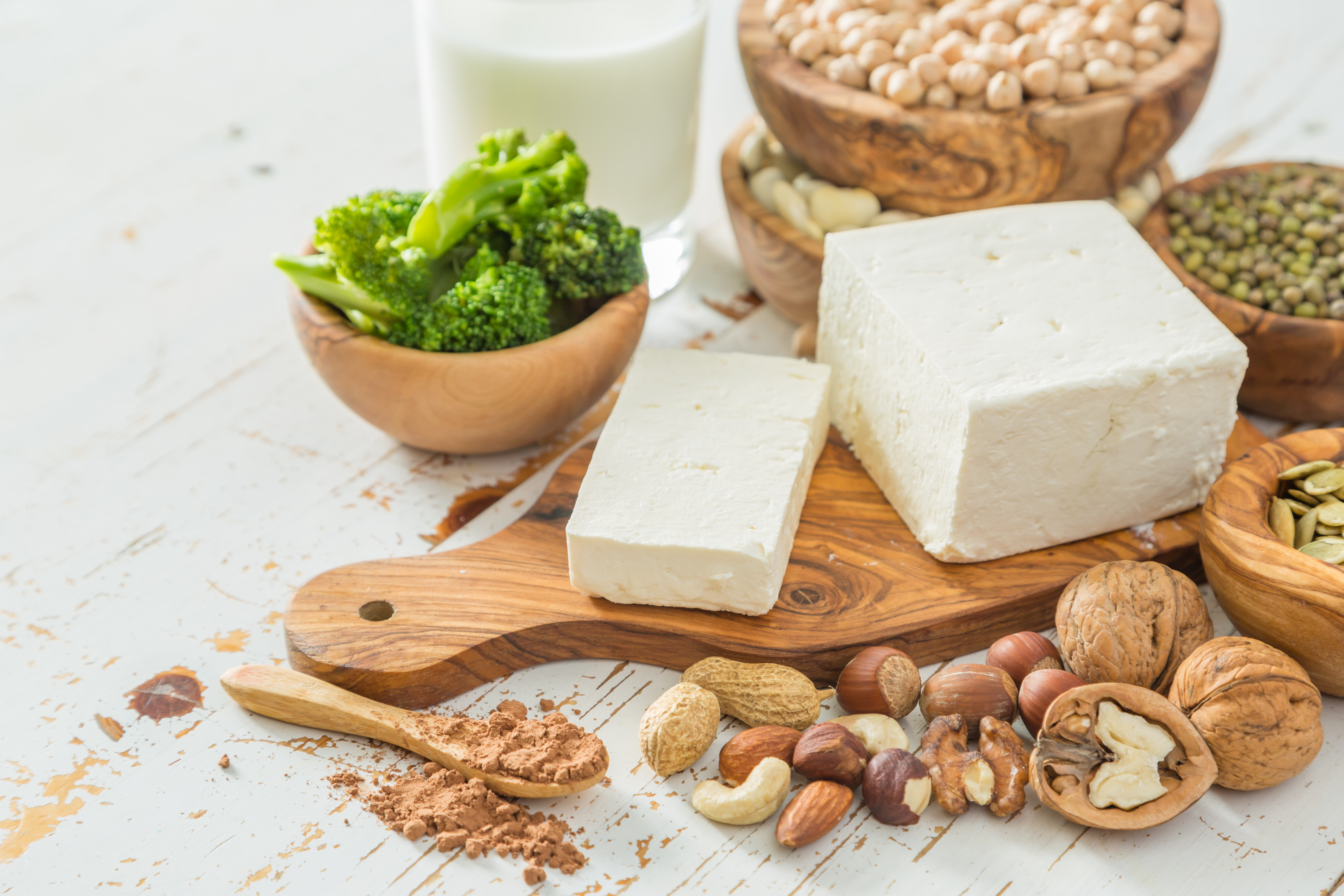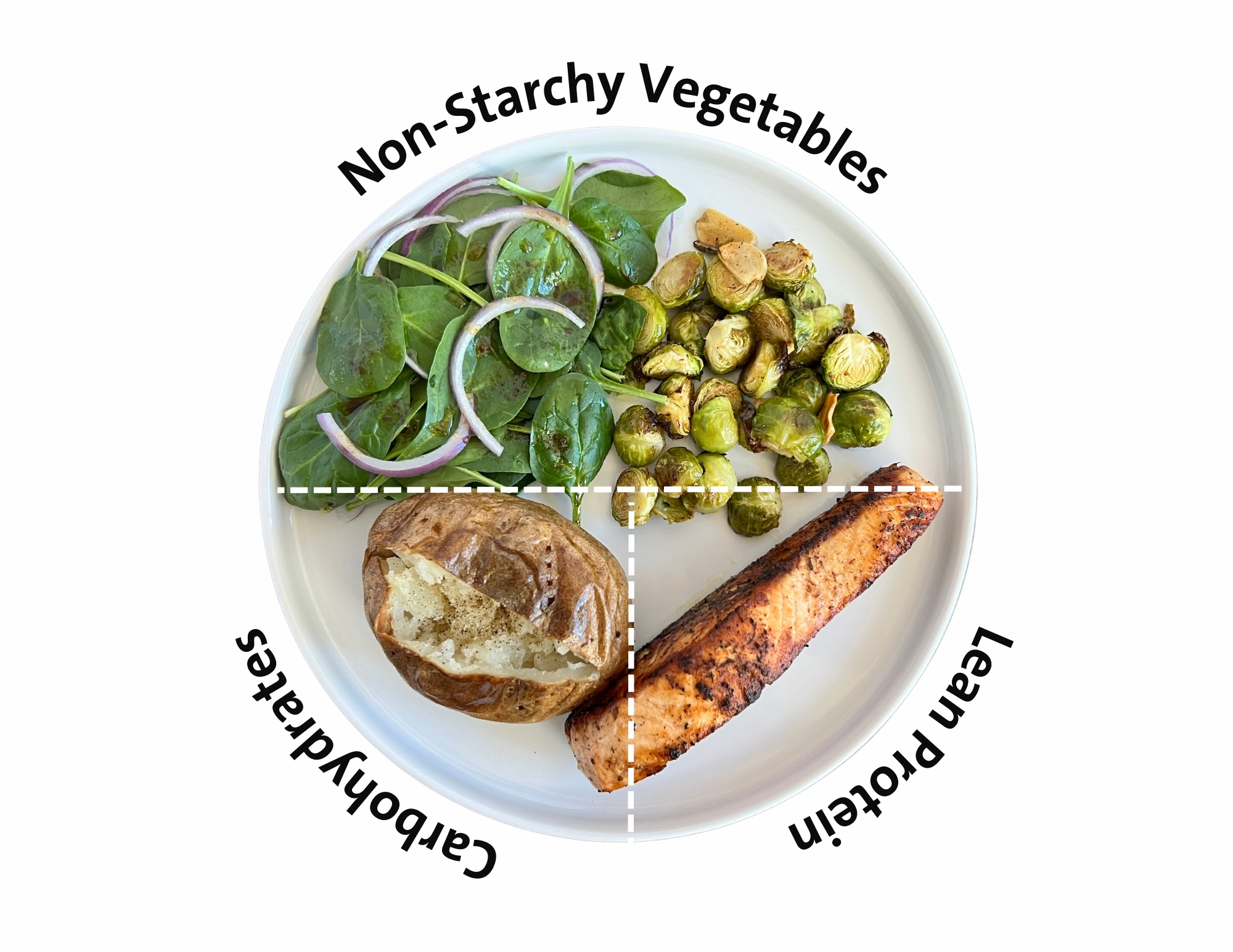Jan 17, 2024, 10:51
by
Sansum Clinic Staff

“Heart disease” refers to several different types of heart conditions. The most common is coronary artery disease (CAD) which can lead to heart attack. A healthy diet plays a key role in preventing heart disease and many other health conditions. While change can be hard, it doesn’t have to happen overnight. Start with small, manageable changes and work gradually towards your goal.
HEALTHY DIET GUIDELINES
- Fruits and vegetables - Eat a variety of fruits and vegetables. Enjoy them fresh, frozen or canned (just watch out for added sugar and sodium). Take washed and cut fruit and veggies on the go as a healthy snack.
- Whole grains - Swap refined grain foods for healthier whole grains which contain more fiber and nutrients. Instead of white rice, try brown rice, barley or quinoa. Look for whole-wheat bread, tortillas and pastas at the grocery store.
- Protein - Cut back on fatty meats and processed meats. Choose lean proteins such as chicken breast, turkey, fish, 93% lean ground beef. Try replacing the meat in your recipes with plant proteins such as beans, lentils, soybeans (edamame),
nuts, tofu and tempeh.

- Fat - Replace saturated fats with unsaturated fats. When cooking, skip the butter and use vegetable oil, such as olive or canola, instead. Measure out the oil added to pots for cooking, about 1 tablespoon, or use a spray to coat your
pan. Limit tropical oils like coconut or palm oil. If you eat dairy products, reduce your saturated fat intake by choosing low-fat dairy (2% fat) products.
- Sodium (salt) - Replace some of the salt in a recipe with herbs and spices to reduce sodium without losing flavor. Or, add nutritional yeast which offers a salty/savory flavor similar to parmesan cheese. Avoid processed and prepared
foods as many contain large amounts of sodium. Get into the habit of checking nutrition facts labels while grocery shopping to find the sodium contents of packaged foods. The American Heart Association recommends no more than 2,300 mg a day (1
teaspoon) for adults and less than 1,500 mg per day (2/3 teaspoon) for adults with high blood pressure.
- Sugar - Limit added sugar to no more than 100 calories per day (6 teaspoons or 24 grams) for women and no more than 150 calories per day (9 teaspoons or 36 grams of sugar) for men. Swap your daily soda for unsweetened tea or fruit
infused sparkling water and ask for less syrup when ordering specialty coffee drinks. Instead of ice cream or cookies for dessert, have a bowl of sweet berries.
- Alcohol - Drink in moderation or avoid alcohol entirely. Men should have no more than 2 drinks per day, and women no more than 1 drink per day.
- Portion sizes - Pay attention to portion sizes. Use the plate method to build your meal - Fill half your plate with non-starchy vegetables, a quarter of your plate with carbohydrates such as beans or whole grain bread, and the last
quarter with lean protein.

Additional heart-healthy habits include maintaining a healthy weight, exercising regularly, not smoking and managing your blood pressure, cholesterol and diabetes.
Talk to your healthcare team about your lifestyle and diet. Together, you can determine how you can lower your risk of heart disease.